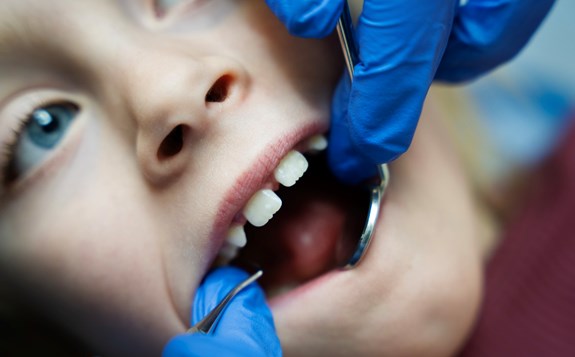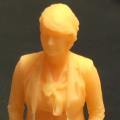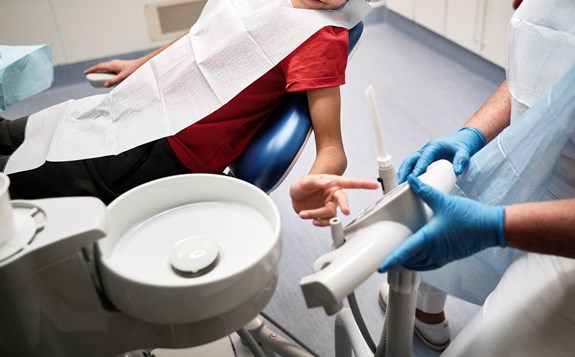We use cookies on this website. Cookies help us deliver the best experience on our website. Read about cookies.
-
- Education
- Education
- Programmes and courses
- Applications and admissions
- Tuition fees
- Scholarships
- Exchange studies at Malmö University
- Study Guidance
-
- After admission
- After admission
- Moving to Malmö
- Pre-orientation
- Arrival guide
-
- About studies at Malmö University
- About studies at Malmö University
- Why choose Malmö University
- Understanding university studies
- Connect with our students
On the page -
- Research
- Research
-
- Doctoral studies
- Doctoral studies
- Doctoral courses
-
- Doctoral schools
- Doctoral schools
- Doctoral school: Education, Learning and Globalisation
- Doctoral school: The National Research School for Professionals in Social Services
- Doctoral school: Learning in Multicultural Societal Contexts
- Doctoral school: ComBine
- Doctoral school: Swedish National Graduate School in Science and Technology Education Research
- Doctoral school: Relevancing Mathematics and Science Education (RelMaS)
- Doctoral school: Sustainable Movement Education
- Doctoral school: Finding ways in a time of great future challenges (FinnFram)
- Doctoral school: Pedagogy and Vocational Skills
- Doctoral school: Culturally Empowering Education through Language and Literature
- Research subjects
-
- Research centres
- Research centres
- Biofilms Research Centre for Biointerfaces
- Citizen Health
- Imagining and Co-Creating Futures
- Institute for Urban Research
- Malmö Institute for Migration Studies
- Literacy and Inclusive Teaching
- Centre for Work Life Studies
- Sustainable Digitalisation Research Centre
- Centre for Sexology and Sexuality Studies
-
- Research publications
- Research publications
- Search publications
- Malmö University Press
- Research events
- Participate in a research study
- Coffee Break Quiz
On the page -
- Collaboration and Innovation
- Collaboration and Innovation
- Innovation
- Collaboration with students
-
- Collaborate with researchers
- Collaborate with researchers
- Labs and facilities
- Culture collaboration
- Support Malmö University
-
- Alumni & Friends
- Alumni & Friends
- Graduation and alumni network
On the page -
- About us
- About us
-
- Faculties and departments
- Faculties and departments
-
- Faculty of Culture and Society
- Faculty of Culture and Society
- Department of Urban Studies
- Department of Global Political Studies
- School of Arts and Communication
-
- Faculty of Education and Society
- Faculty of Education and Society
- Department of Childhood, Education and Society
- Department of Sports Sciences
- Department of Natural Science, Mathematics and Society
- Department of School Development and Leadership
- Department of Culture, Languages and Media
- Department of Society, Culture and Identity
-
- Faculty of Technology and Society
- Faculty of Technology and Society
- Department of Computer Science and Media Technology
- Department of Materials Science and Applied Mathematics
-
- Faculty of Odontology
- Faculty of Odontology
- Master's programmes in Dental Science
- University Dental Clinic
- Management and decision-making paths
-
- Vision, objectives and strategy 2025
- Vision, objectives and strategy 2025
- Global engagement
- Sustainability
- Widened recruitment and participation
- Quality assurance work at the University
-
- Malmö Academic Choir and Orchestra
- Malmö Academic Choir and Orchestra
- Student work – video pieces
-
- Annual Academic Celebration
- Annual Academic Celebration
- Academic traditions
- Meet our new professors
- The University in a troubled world
On the page
Dental specialties and subspecialties
and subspecialties
The Faculty of Odontology's specialist subjects and other subjects.
Cariology
In cariology, students learn about the diagnostics of caries disease, its causes, risk assessment, supportive treatment and operative treatment. We accept patients on referral from general dentists and dentists in other dental specialities. Research and postgraduate training that is conducted has a focus on caries from an evolutionary perspective and especially microbiological and immunological aspects.
Dental care
Student Clinic
The student clinic treats patients with caries disease and at risk of the disease. The treatment aims to slow down the caries disease before the damage becomes so great that it needs to be repaired and, of course, to repair the damage that has gone too far to slow down, i.e. "repair teeth". Students work under the supervision of dentists with specialised expertise in the field. Caries treatment, therefore, aims to ensure that the patient does not suffer any new damage or that minor damage is made worse. The usual dental filling aims to remove irreparably damaged tooth substance, close the defect and restore the function of the tooth.
The Clinic
The clinic treats patients on referral from general practitioners, specialist dentists in the region and other departments of the Faculty of Odontology. Dentists with specialised and in-depth expertise in the subject carry out diagnosis, risk assessment and treatment with the help of specially trained dental nurses. Common reasons for referral are special cariological diagnostics, risk and prognosis assessment and treatment of caries risk that is difficult to assess, treatment of carious disease with complicated causes (e.g. dry mouth after radiotherapy or Sjögren's syndrome), diseases that affect dietary habits, eating disorders, etc.
As part of the caries risk assessment and determination of the causes of caries in individual cases, saliva samples are taken. The samples are analysed for flow rate, buffering capacity and the presence of caries-causing bacteria. A cariogram is used to help with risk assessment and patient information. Investigation of other changes in the hard tissues of the teeth such as tooth development disorders and erosion damage are other reasons for referral. Patients are also referred because of technically difficult fillings.
Cariology – The study of dental caries
The subject of Cariology includes diagnostics and treatment of caries and erosions, its causes and defence factors, as well as risk assessment and preventive measures regarding both caries and erosions. The treatment includes individually adapted preventive and disease-treating measures as well as operative treatment with the aim of maintaining or improving oral health and thus general health.
Within the subject, it is considered that medical, psychosocial, economic and social factors, dental care habits and more, can affect caries disease and its course. If necessary, motivational talks are held to initiate behavioural change, for example changing unfavourable dietary habits. The subject also includes diagnostics and treatment of congenital or acquired defects and damage in the hard tissues of the tooth.
Research
The research deals with various aspects of caries where the focus is on caries from different perspectives such as microbiological and immunological aspects as well as the importance of hereditary factors. Research with a salutogenic (health-promoting) perspective is also conducted within the subject, with a focus on health factors rather than risk factors. The research is often conducted in collaboration with surrounding dental care and other scientific fields.
Cariogram – a tool that graphically demonstrates caries risk.
Cariogram – Swedish version
Cariogram – Swedish version
The cariogram is a graphic image that interactively illustrates the patient's risk of developing new caries in the future.
Cariogram in more languages
Cariogram in more languages
Cariogram is also available in Chinese, Farsi, French, German, Indonesian, Italian, Japanese, Portuguese, Russian, Spanish and Thai.
Endodontics
In Endodontics, dental students learn about diseases in the dental pulp or starting from the dental pulp. The students are also allowed to treat patients with these conditions under supervision. The treatment generally involves root canal treatment and root filling. We accept patients for specialist treatment by referral from general dentists and dentists in other Odontological specialities.
Dental care
Student Clinic
The student clinic treats patients with pulpitis (inflammation of the tooth pulp) and apical periodontitis (infection of the root canal system). Students work under the supervision of specialist dentists or dentists with specialised expertise in the field. Root canal treatment is a relatively time-consuming process, generally requiring several treatments to completely clean the tooth's root canals and remove any bacteria that may be present. Once the root canals are deemed clean, they are completely filled and the tooth is repaired with a filling or crown to prevent any bacteria from leaking back in from the oral cavity. Follow-up of root canal treatments performed at the student clinic shows that the treatments are of high quality.
Teacher's clinic
The teaching clinic treats patients on referral from general practitioners, from specialist dentists in the region and from other subjects at the School of Dentistry. Endodontic specialists, dentists undergoing specialist training or dentists with specialised expertise in the subject perform the treatments. As an additional aid in performing complicated root canal treatments, we have an operating microscope, ultrasound technology, various file systems and the possibility of microbiological diagnostics.
Common reasons for referral for endodontic specialist care include technical difficulties such as difficulty in finding the root canals in the tooth or complicated tooth anatomy that makes treatment technically difficult, but also problems with diagnosis and prognosis assessment. Other reasons for referral are more severe root canal infections that have not healed despite root canal treatment and teeth that continue to cause discomfort or pain after root canal treatment. If necessary, the root canal treatment is supplemented with surgical treatment such as apical surgery (root canal surgery).
We also perform dental infection investigations in case of prevention or suspicion of a connection between dental infection and general health. Patients with dental fear are welcome and treatment under nitrous oxide sedation can be offered. We can admit patients with long-term pain symptoms who, if necessary, can be investigated further at the Orofacial Pain Unit.
Research in Endodontics
Research areas in endodontics include infection control, the function of the pulp-dentin complex and diseases in or arising from the dental pulp. These diseases are called pulpitis (pulp inflammation in the vital pulp tissue in the tooth) and apical periodontitis (inflammation at the root tip of the tooth due to infection starting in the root of the tooth). The research involves the development of knowledge about how to prevent, diagnose, treat, and assess the prognosis of these diseases. The diseases are also studied at the societal level, i.e. how common it is with root tip inflammation in the population and what it is that affects the incidence.
The research conducted within endodontics is currently focused on the following areas: endodontic infection control in general dentistry (barriers & facilitators) clinical treatment research and development of digital research protocols, the effect of ultra vibrations on pulp tissue, pulp treatment for exposed pulp, long-term orofacial pain, quality of treatment, treatment outcomes, uncertainty in endodontics and decision making in endodontics.
Maxillofacial surgery and oral medicine
Research and postgraduate training are conducted with a focus on temporomandibular joint diseases, hard and soft tissue regeneration before implant treatment, health economic aspects of wisdom tooth surgery, mucosal changes and bone healing related to smoking and drug-induced bone necrosis.
Examples of the clinical subject areas we are active in:
- Removal of teeth both by extraction and surgery
- Exposing teeth before orthodontic treatment
- Surgical treatment of remaining inflammations in root-treated teeth.
- Diagnostics and treatment of changes in the oral mucosa
- Implant operations
Research and doctoral training in maxillofacial surgery and oral medicine
Research and postgraduate training are conducted with a focus on temporomandibular joint diseases, hard and soft tissue regeneration before implant treatment, health economic aspects of wisdom tooth surgery, mucosal changes and bone healing related to smoking and drug-induced bone necrosis.
Contact
Materials science and technology
Within the subject of Materials Science and Technology, research and postgraduate training are conducted to develop and apply biocompatible materials and methods. The aim is to prevent, treat and maintain oral health and function in patients with clinical conditions associated with damaged or missing teeth and maxillofacial tissues. Research and teaching include clinic and laboratory activities, both nationally and internationally.
Research in Materials Science and Technology
Within the subject of Materials Science and Technology, research and postgraduate training are conducted to develop and apply biocompatible materials and methods. The aim is to prevent, treat and maintain oral health and function in patients with clinical conditions associated with damaged or missing teeth and maxillofacial tissues. Research and teaching include clinic and laboratory activities, both nationally and internationally.
Oral and maxillofacial radiology
Dental digital radiology encompasses many areas from technology to the societal benefit of X-ray examinations. How to best optimise examinations carried out with X-rays concerning e.g. the amount of radiation dose to the patient. Magnetic resonance examinations, MR - how can this method be better utilised? Diagnostic accuracy, reliability, and utility for both caregivers working in the head and neck area and patients are investigated. Collaboration exists both nationally and internationally.
Research in X-ray diagnostics
Within odontological x-ray diagnostics, research and postgraduate training are conducted with a focus on, among other things, digital quality assurance, improved risk assessment regarding caries, and jaw joints and cost-effectiveness when using Cone Beam Computed Tomography (CBCT) compared to conventional methods.
Temporomandibular Joint (TMJ) osseous changes detection
CBCT 2D multiplane reconstructions
CBCT 2D multiplane reconstructions
CBCT 3D multiplane reconstructions
CBCT 3D multiplane reconstructions
Orofacial pain and jaw function
Orofacial pain and jaw function follow the vision of improving health and quality of life through research, education and care at the highest international level. We conduct care, education and research and specialists in orofacial pain, dentists undergoing specialist training, general dentists and doctoral students work here.
Research in Orofacial pain and jaw function
We work with translational and and applied clinical research on orofacial diseases and conditions that are common in the population. The research is based on the patients' perspectives.
Our ambition is a broad research base that includes biology, individual, and society with a focus on mechanisms, diagnostics, evaluation of treatment, epidemiology and learning. The research should lead to better and more evidence-based knowledge in collaboration with our society. It is important for us that the new knowledge should benefit the care and with a special focus on patient's quality of life.
The research projects are often multidisciplinary and conducted with both national and international collaborators.
Contact
Oral biology
Oral pathology and oral biology are part of Section 1 at the Faculty of Odontology. Here, research and teaching are conducted on the tissues of the oral cavity and its diseases, as well as the interaction with oral microorganisms. We carry out many different microbiological investigations, everything from resistance determinations to control of unit water.
Research in oral biology - biofilms
Most of the infectious diseases of the mouth are caused by biofilms – macromolecules and microorganisms that attach to surfaces and form microbial communities. A prominent feature of biofilms that has clinical relevance is their strong resistance to host defence mechanisms and conventional treatments including many antimicrobial agents. In order to be able to control, modify or eliminate biofilms, it is therefore important to understand the mechanisms that make bacteria adapt and survive in the biofilm environment.
The focus of our work is on diseases in the oral cavity caused by biofilms. Our goal is to understand the mechanisms that create virulence, that is, cause oral bacteria to cause disease, in biofilms and to identify key points to prevent this process. The working hypothesis is that the development of virulence properties in oral biofilms is regulated by interactions with surface-associated macromolecules from saliva (eg mucins) and/or proteins from the gingival crevicular fluid. Flow cell models are used in combination with confocal scanning laser microscopy to study the adhesion of bacteria to a range of surfaces conditioned with saliva or serum. Phenotypic changes during biofilm development are investigated using a proteomic approach. In parallel with mechanistic studies, clinical trials are carried out in collaboration with Folktandvården to determine whether specific phenotypes can be used as biomarkers to identify patients at risk of disease. We anticipate that our results will contribute to the development of future antimicrobial therapies that target disease-inducing properties in biofilms instead of specific microorganisms.
Contact
Oral diagnostics
In Oral Diagnostics, students learn clinical examination methodology, diagnostics and treatment planning. All new patients who wish to register for treatment at the student clinic are first examined at Oral Diagnostics, by a dentist or by a student under the supervision of a dentist. Patients whose treatment needs are deemed to be addressable at the student clinic will receive a treatment proposal and will then be called to the student clinic for treatment.
Research in Oral Diagnostics
Ongoing research projects include higher education pedagogy and clinical pharmacology. Research in pedagogy includes the development and evaluation of the faculty's pedagogical model (case methodology with flipped classroom) as well as the evaluation of examination forms and the development of a model for continuous evaluation (programmatic assessment). In the field of clinical pharmacology, drug use in dentistry is studied to evaluate the effect of different preparations and the benefits of treatment.
Oral health
The field is interdisciplinary and knowledge from above all odontology and medicine, but also from behavioural science is integrated into education, treatment, and research. The emphasis is on interventions that promote oral health and prevent oral disease in all age groups.
Research in oral health
Current research projects are about how diagnostics and treatment are affected by the new classifications of periodontitis, about the evaluation of oral care programs for patients treated for cancer in the head and neck region, and about the importance of saliva secretion and saliva composition for the experience of dry mouth.
Oral pathology
Oral pathology is the study of diseases of the oral cavity in its broadest sense. The basis of the activity is the pathologist-anatomic diagnostics (PAD) that is carried out at the department. We handle approximately 6000-6500 tissue samples (biopsies) per year from most of the country. The samples originate mainly from specialist clinics, but we also review a large number of samples from general dentists and also veterinarians. The activity generates both material and knowledge for teaching as well as being a source for new research projects.
Research in Oral Pathology
The basis for our research is clinical problems that arise in the tissue samples (biopsies) that are sent in large numbers for diagnostics to the department. We conduct both clinical and experimental studies mainly around various aspects of inflammation, e.g. aberrant immune reactions in the oral mucosa but also regarding disease development and risk and prognosis assessment of tooth-related inflammation in the jawbone.
Orthodontics
Bite abnormalities are common and occur in approximately 60-75% of the population of which 30% have such bite abnormalities that they should be corrected. Untreated bite abnormalities can lead to risks to oral health and function. This, together with a profound dissatisfaction with visibly visible bite deviations, are considered important motivating factors for treatment.
Orthodontic treatment or orthodontic treatment involves influencing the jaws and their growth with the help of fixed or removable braces and moving teeth with a deviated position so that the rows of teeth better correspond to the "normal" bite.
Research on orthodontics
About 30% of the population has such deviations in the bite that they should be corrected. Untreated bite deviations can lead to risks for oral health and function as well as a negative impact on the individual's perceived oral health-related quality of life.
The orthodontics department in Malmö conducts evidence-based patient-centred research. The projects focus on evidence-based clinical research and primarily include evaluation of the oral health-related quality of life, treatment effectiveness, cost-effectiveness and side effects of orthodontic treatment. The research is part of the faculty's research environment: Orofacial functional disorders and pain. Orofacial dysfunction and pain is a summary of many clinical problems and diseases involving the bite and jaws, masticatory muscles and jaw joints and adjacent structures. Children, young people and adults are affected and the cause of the problems is usually multifactorial.
Contact
Periodontics
Within the subject of Periodontology, basic education, research and doctoral education are conducted, as well as reporting of research results in prevention, treatment, and reconstruction/regeneration as a result of diseases in tissues around teeth and implants, as well as the connection between these diseases and general health.
Research in periodontology
Research and postgraduate education include laboratory, translational and clinical activities, often in collaboration with national and international actors from academia, healthcare and industry. The research results are communicated via national and international publications, congresses, and other forums.
Pedodontics
Pedodontics is an interdisciplinary subject and today's research is focused on promoting good and equal health. The focus is on pain and pain relief in connection with dental treatment and the children's experiences of this. Furthermore, the focus is on the oral health of children who are particularly exposed and vulnerable, e.g. medically burdened children, children in socially vulnerable areas and children who have been placed by society in 24-hour care. Diagnostics of proximal caries in primary teeth is another area.
Research in pedodontics
Pedodontics is an applied discipline in which basic knowledge from various odontological, medical and behavioural sciences is brought together and applied as an often modified form, adapted to well-defined characteristics of the constantly developing individual.
The cross-sectional nature of the subject area of pedodontics is reflected in the department's research profile, which includes the following research areas:
- Evaluation of endodontic treatments at an early age
- Periodontal diseases in children and adolescents
- Immigrant children's dental health
- Caries prevention in children and young people
- Oral conditions and behaviour in dental care situations in premature infants
- The function of the small salivary glands at different ages.
Contact
Prosthodontics
Prosthodontics concern the cause, consequence and treatment of congenital or acquired loss of teeth. Loss of teeth can affect the ability to chew and speak, change the appearance and have a negative psychosocial impact. We teach about risk and prognosis assessment, therapy planning and rehabilitation. Our research topics are broad and encompass decision-making, biomaterials and reconstructive care, and oral health-related quality of life. We treat referred patients with all types of prosthetic rehabilitative needs with the goal of restoring health, function and quality of life.
Research on prosthodontics
We conduct research from the perspective of the patient, the care provider and society - often with a multidisciplinary approach. The questions are both basic biological and clinical and cover the entire range from molecule to human, from laboratory studies to registry studies and clinical studies. Our research topics are broad and encompass decision-making, biomaterials and reconstructive care as well as oral health-related quality of life. Current projects concern digital processing techniques, biomaterials development, adaptation and implementation, dental implants as well as the development of new and evaluation of existing treatment methods that include cost-effectiveness analysis and patients' quality of life.
Community dentistry
Community dentistry studies the impact of behavioural, social and health care organisational factors on people's oral health, health behaviour and quality of life.
Research in community dentistry
Research focuses on the impact of the design of the dental care system on people's dental habits and on how dental professionals can promote positive health behaviour in people. Another area of research is the working conditions of dental professionals, including their autonomy at work and factors that favour or hinder teamwork within the dental profession and with professionals outside the dental profession.
















